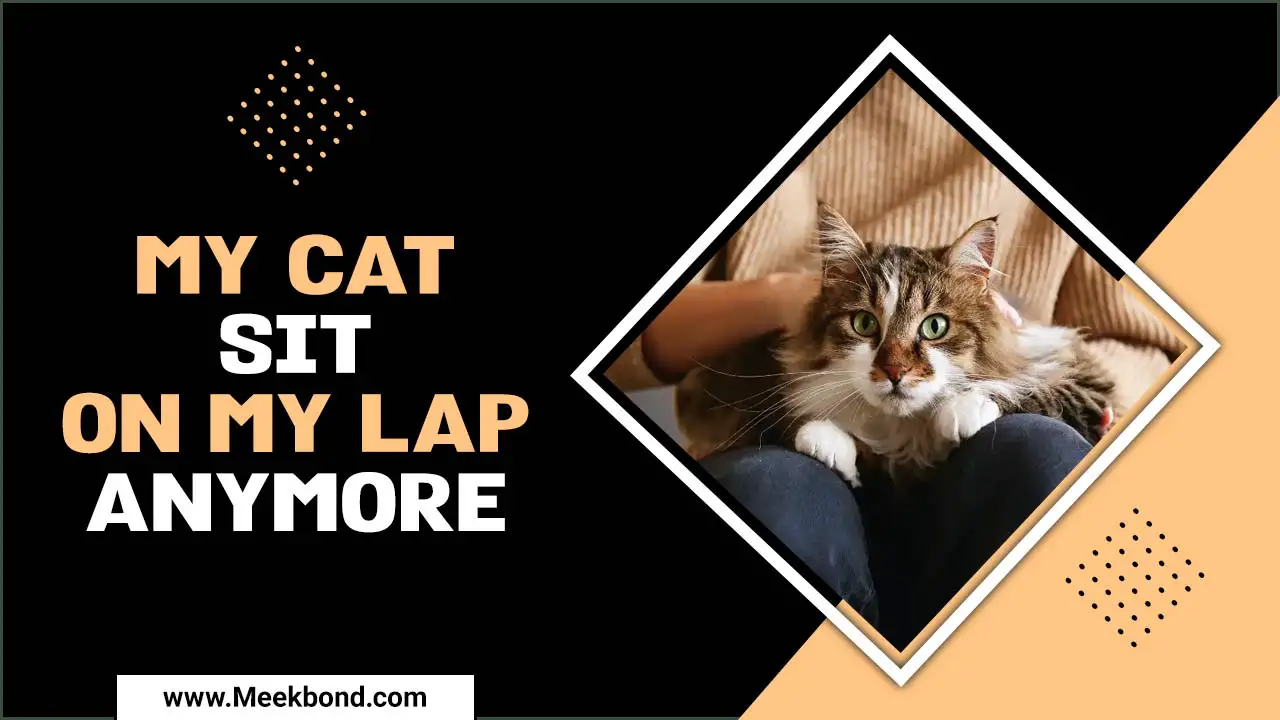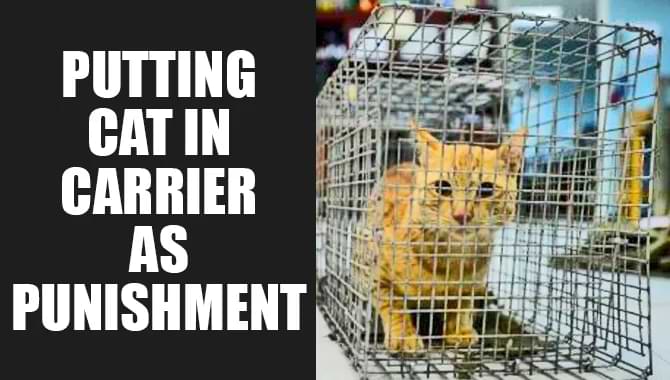Kittens are undeniably one of the cutest animals on the planet. With their playful personalities, fluffy fur, and adorable little faces, it’s no wonder they have captured the hearts of millions worldwide.
While kittens may be cute and cuddly, they require much care and attention. It’s important to provide them with proper nutrition, regular veterinary checkups, and plenty of playtimes to keep them healthy and happy. You need to know the signs if you have a cat and think it might be a lap cat.
We will explore how to tell if a kitten is going to be a lap cat. By understanding these signs, you can prepare for your kitten’s personality and provide them with the right environment to thrive.
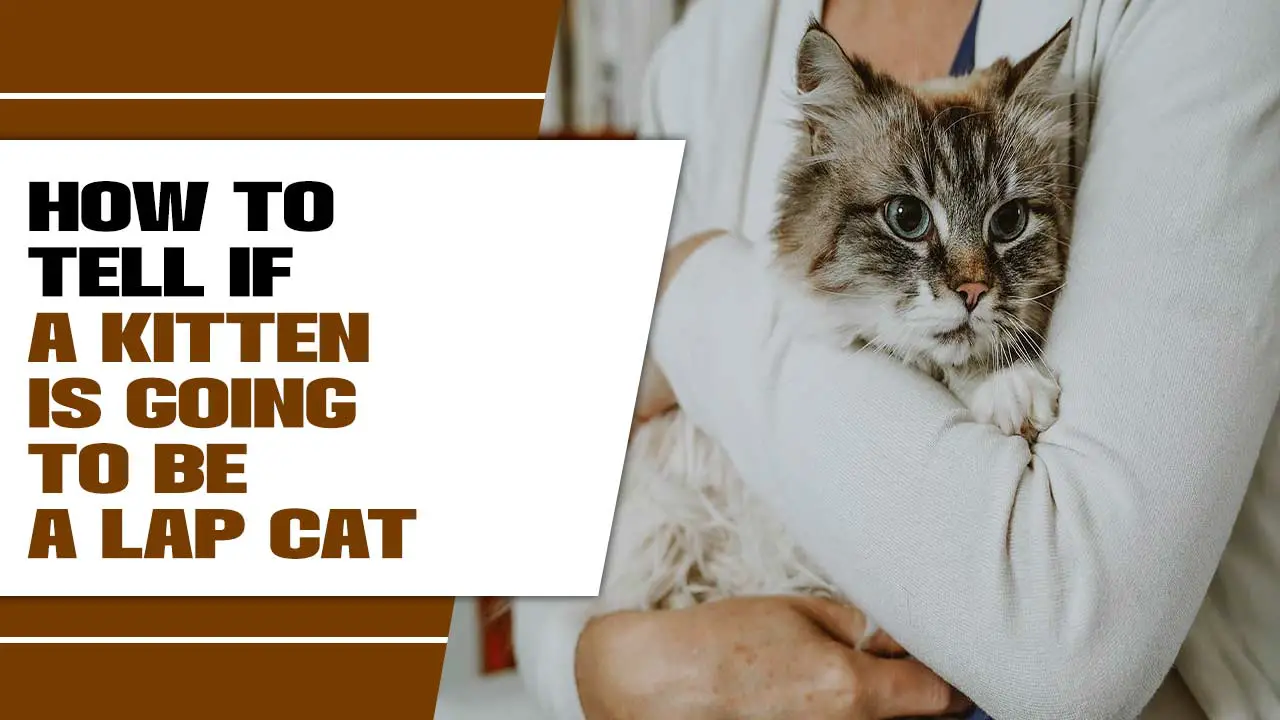
What Is A Lap Cat?
A lap cat is a term used to describe a cat that enjoys sitting or lying on its owner’s lap. These cats are typically known for their affectionate nature and love to be close to their owners. Lap cats often seek out their owner’s lap as a comfortable and secure spot to rest and receive attention.
They may knead on the lap, purr loudly, or nuzzle their owner’s hand as a sign of contentment. Lap cats can provide great companionship and comfort as they enjoy close physical contact with their owners. If you’re looking for a cuddly and affectionate feline companion, a lap cat might be the perfect choice for you.
Common Lap Cat Traits
Lap cats are popular for their affectionate and cuddly nature. They often seek out their owners’ laps as a favourite spot to rest and receive attention. Some common lap cat traits include:
- Affectionate
- Calm
- Sociable
- Trusting
- Good temperaments
How To Tell If A Kitten Is Going To Be A Lap Cat? The Revealed Answer
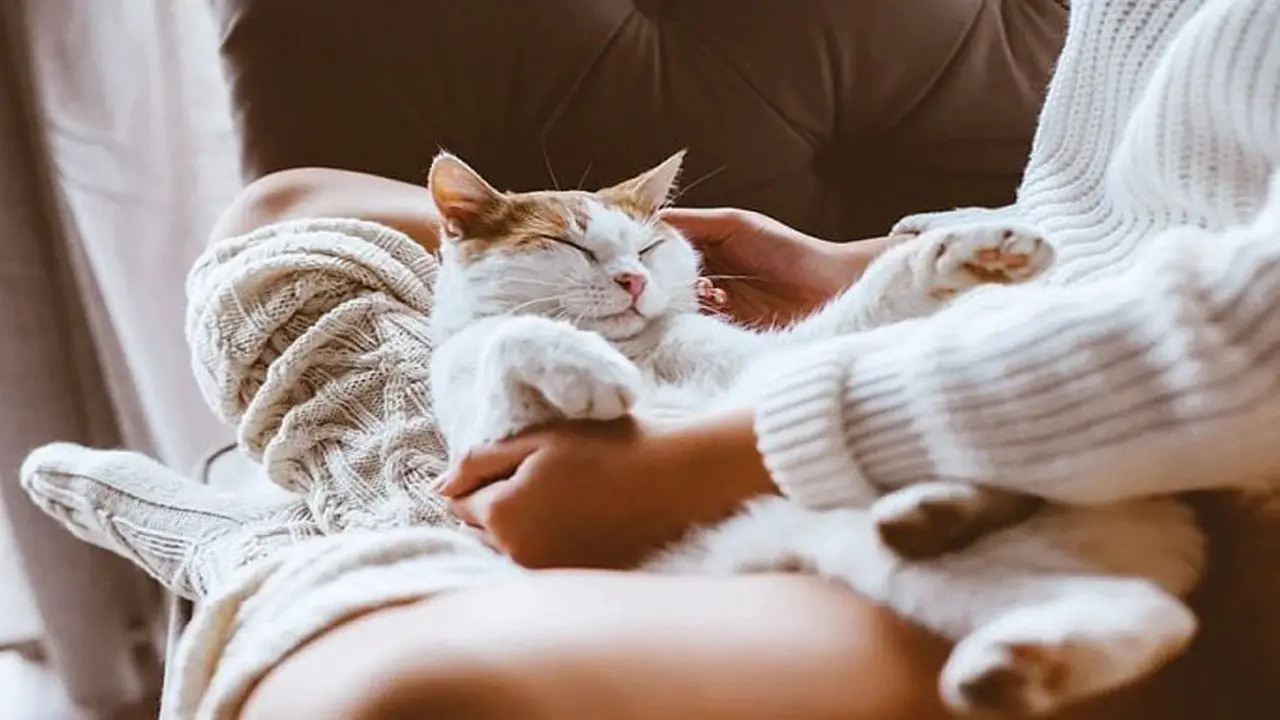
Lap cats, as the name suggests, are known for their love of curling up on their owner’s laps. This behaviour is often seen in breeds such as the Ragdoll and the Persian. Lap cats tend to be affectionate and enjoy being close to their owners. Determining whether a kitten will grow up to be a lap cat can be a bit challenging, as their personalities can change as they mature. Here are some information below:
1.Signs That A Kitten May Become A Lap Cat
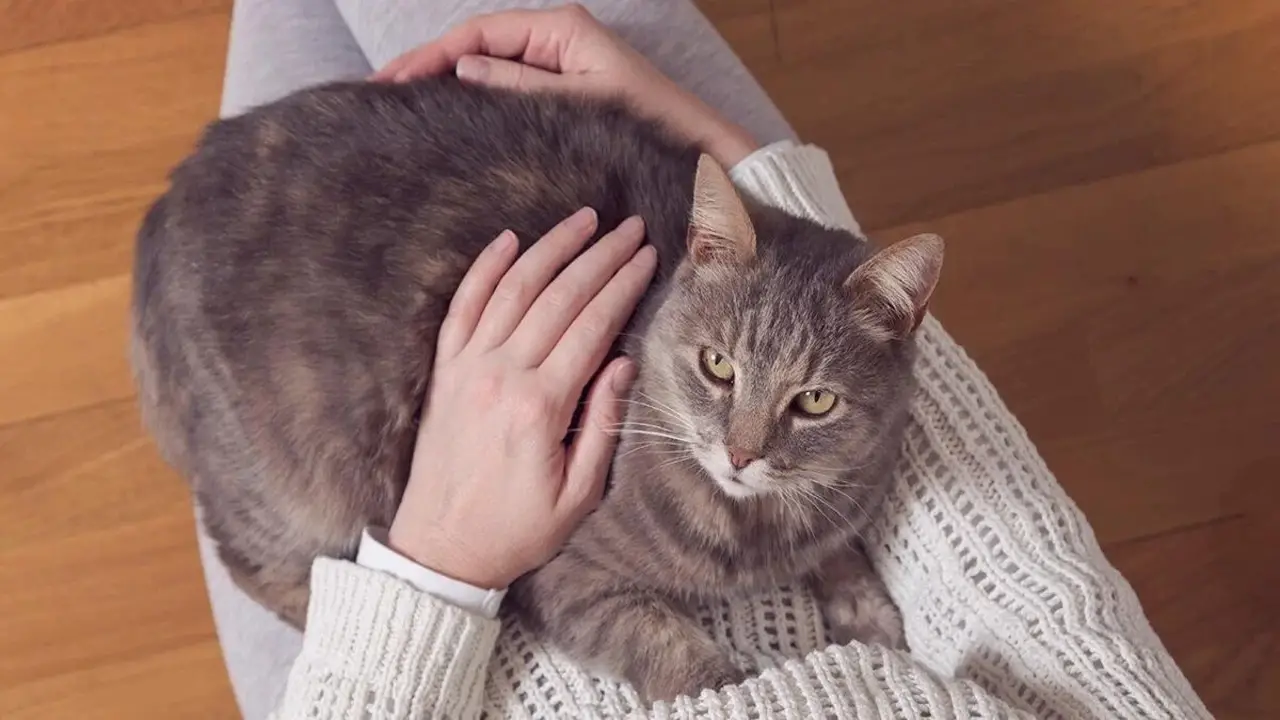
- Enjoys sitting on laps and being petted
- Seeks out human contact and attention
- May purr and knead on laps
- Shows affectionate behaviour, such as rubbing against legs or head butting
- Prefers to be close to their humans and may follow them around the house
- Seeks out cosy spots, such as blankets or cushions, to curl up on laps
2.Observe The Kitten’s Behaviour And Temperament
Observing a kitten’s behaviour and temperament can provide valuable insights into whether they will become a lap cat. Look for signs of affection, such as purring, kneading, and rubbing against you. A kitten who seeks your attention and enjoys being petted is likelier to enjoy sitting on your lap. Additionally, pay attention to their overall temperament.
Kittens who are calm, relaxed, and enjoy being held are likelier to become lap cats. On the other hand, if a kitten is skittish or easily startled, they may not be as inclined to sit on your lap. It’s important to remember that each kitten is unique and may develop their own preferences over time, so be patient and give them plenty of love and attention to foster a strong bond.
3.Kittens That Seek Out Human Contact
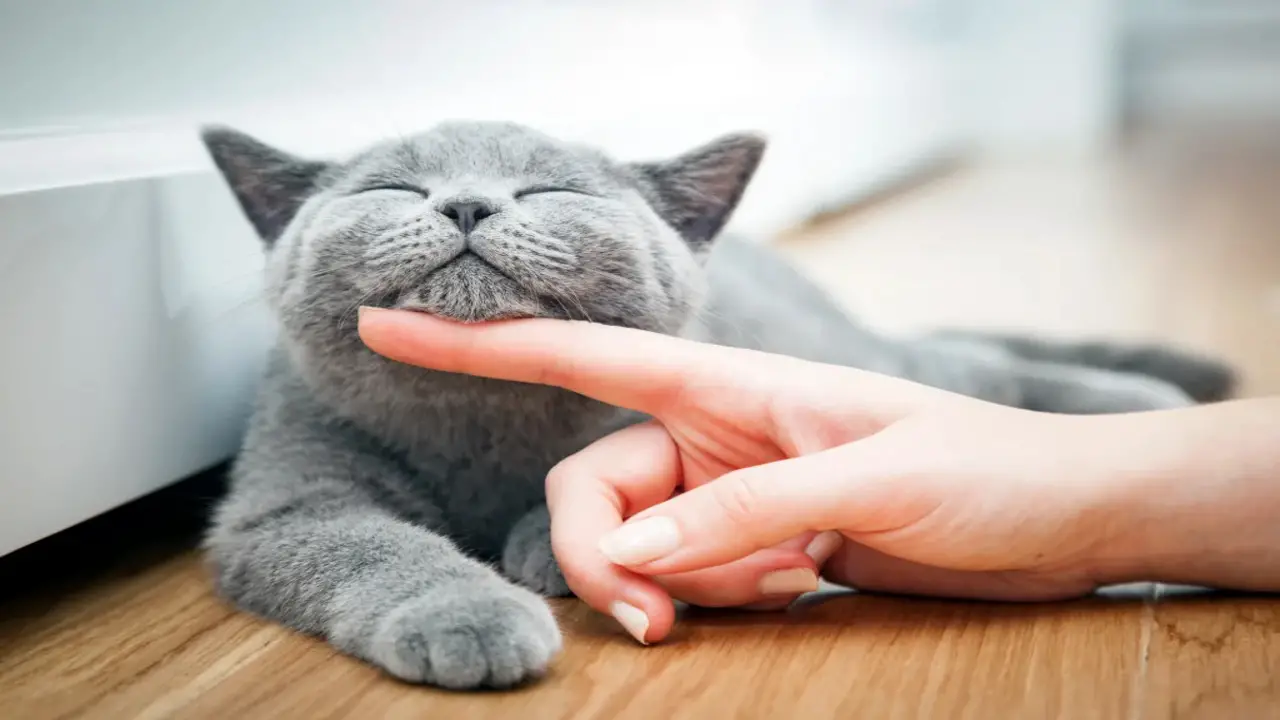
If you’re wondering whether a kitten will be a lap cat, one of the key indicators to look for is their desire for human attention. If they constantly climb onto your lap or follow you around the house, it indicates they enjoy being close to their humans. Additionally, pay attention to the kitten’s behaviour during playtime.
If they consistently try to engage with you and seek interaction, it suggests that they have a social and affectionate nature. Remember that each kitten is unique and may have different preferences for human contact, but these behaviours can give you a good idea of whether your furry friend will become a snuggly lap cat.
4.Kittens That Enjoy Being Held And Petted
Kittens that enjoy being held and petted will likely become lap cats. When interacting with a kitten, observe their reactions to touching and holding. If they purr, knead their paws, and nuzzle into your touch, it indicates that they enjoy physical affection and may become lap cats.
Additionally, pay attention to their behaviour during playtime. If they frequently seek out human interaction and prefer being close to you, it suggests that they will likely enjoy sitting on your lap as they grow older. However, it’s important to remember that each kitten has its own unique personality,
5.Kittens That Show Affectionate Behaviours Such As Purring And Kneading
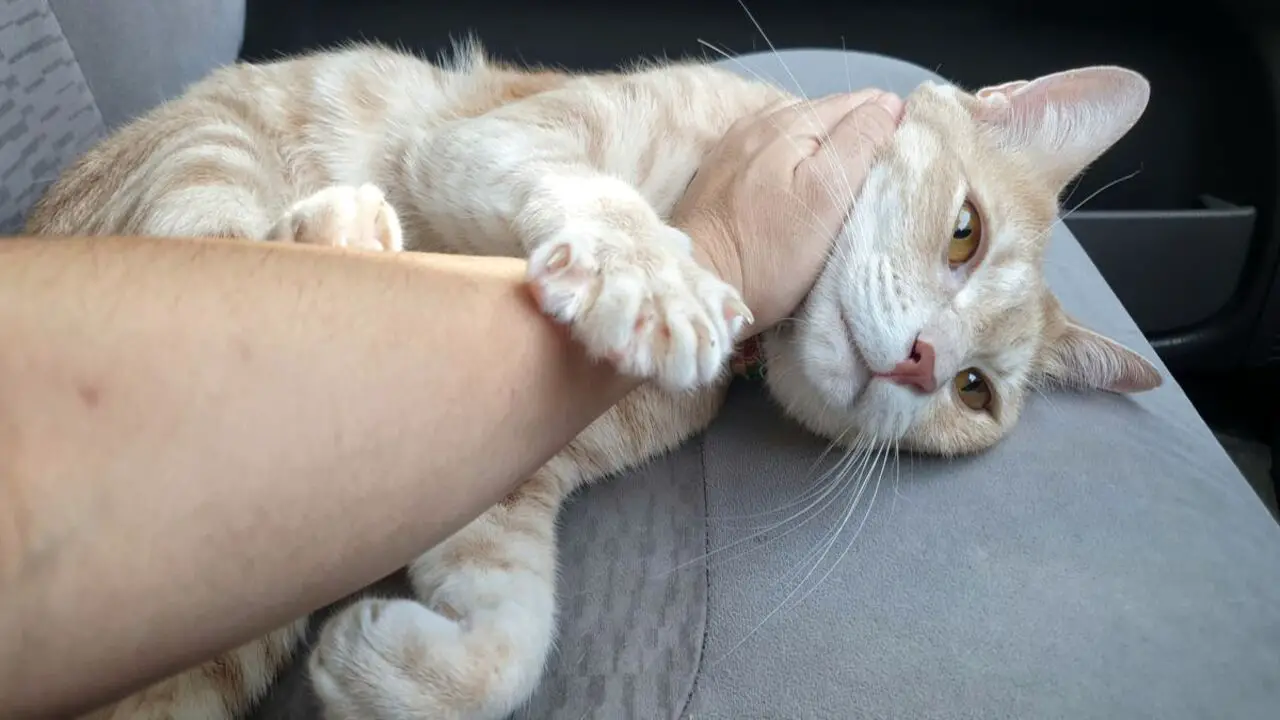
Kittens that show affectionate behaviours such as purring and kneading are likelier to become lap cats. Affectionate kittens often display behaviours such as purring, kneading with their paws, and rubbing against their legs or hands.
These behaviours indicate that the kitten seeks comfort and connection with their human companions. Purring is a sign of contentment, and kneading is a behaviour that mimics kittens’ actions when nursing from their mother. Both of these behaviours suggest that the kitten is comfortable and feels safe in your presence.
If you are looking for a cuddly companion, watch for these affectionate behaviours when choosing a kitten. However, it’s important to remember that each cat has its own unique personality, so even if a kitten doesn’t display these behaviours, they can still develop into a loving and affectionate pet with time and patience.
6.Consider The Kitten’s Breed And Genetics
When determining if a kitten is likely to become a lap cat, it is important to consider the kitten’s breed and genetics. Some breeds are known for being more affectionate and prone to seeking out human companionship than others. For example, many people consider the Ragdoll breed particularly fond of cuddling and sitting on laps.
Additionally, a kitten’s genetics can affect their temperament and personality traits. If the kitten’s parents or siblings have shown lap cat tendencies, there is a higher likelihood that the kitten will also enjoy being a lap cat.
Some cat breeds are more predisposed to being lap cats than others. For example, breeds like the Ragdoll and the Persians are known for their affectionate and docile nature, making them more likely to enjoy sitting on your lap.
How Do I Know If My Kitten Has Potential As A Lap Cat?
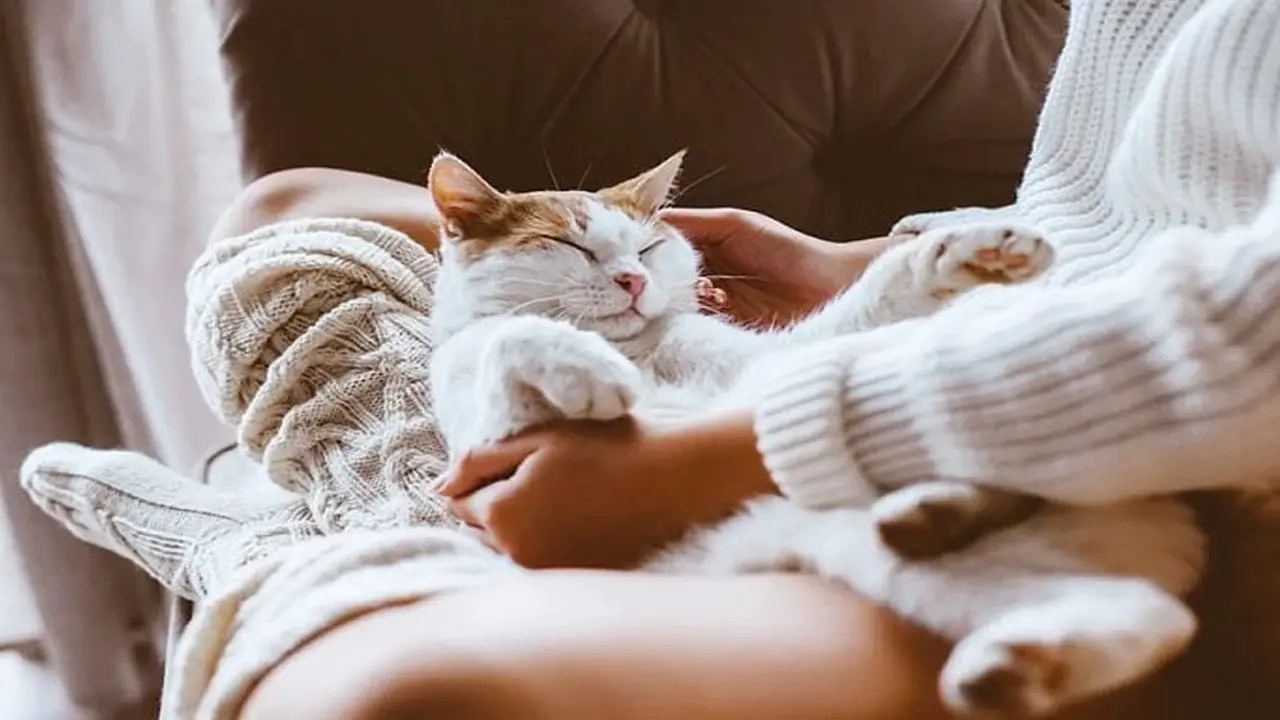
If you’re wondering whether your kitten has the potential to be a lap cat, there are a few things to look out for. First and foremost, pay attention to your kitten’s personality and early signs of affection. Lap cats are more affectionate and cuddly than their more independent counterparts. If your kitten shows early signs of enjoying being held and petted, that’s a good sign that they may have lap cat potential.
Another thing to consider is age. Kittens are naturally more active and curious than adult cats, so don’t worry if your little one isn’t showing much interest in being a lap cat just yet. They may become more inclined to snuggle up with their humans as they mature.
Finally, it’s important to remember that every cat is unique. Some may never be lap cats, no matter how much love and attention they receive. Don’t force your kitten into something they’re uncomfortable with – respect their boundaries and enjoy their company on their own terms.
Will My Kitten Be A Lap Cat?
Whether or not your kitten will be a lap cat depends on various factors, including their breed, personality, and upbringing. Some breeds, such as the Siamese and the Persian, are popular for being more inclined to snuggle up on laps. However, even within a breed, individual personalities can vary greatly.
Kittens who have been socialized with humans from an early age are more likely to enjoy being held and cuddled. On the other hand, kittens who were not handled much in their early weeks may be more skittish and less likely to enjoy sitting on laps.
Ultimately, it is important to remember that every kitten is unique and may have their own preferences regarding lap-sitting. Just keep showing them love and affection; they will show you how they want to be loved back.
How Can You Tell If A Kitten Will Be Friendly?
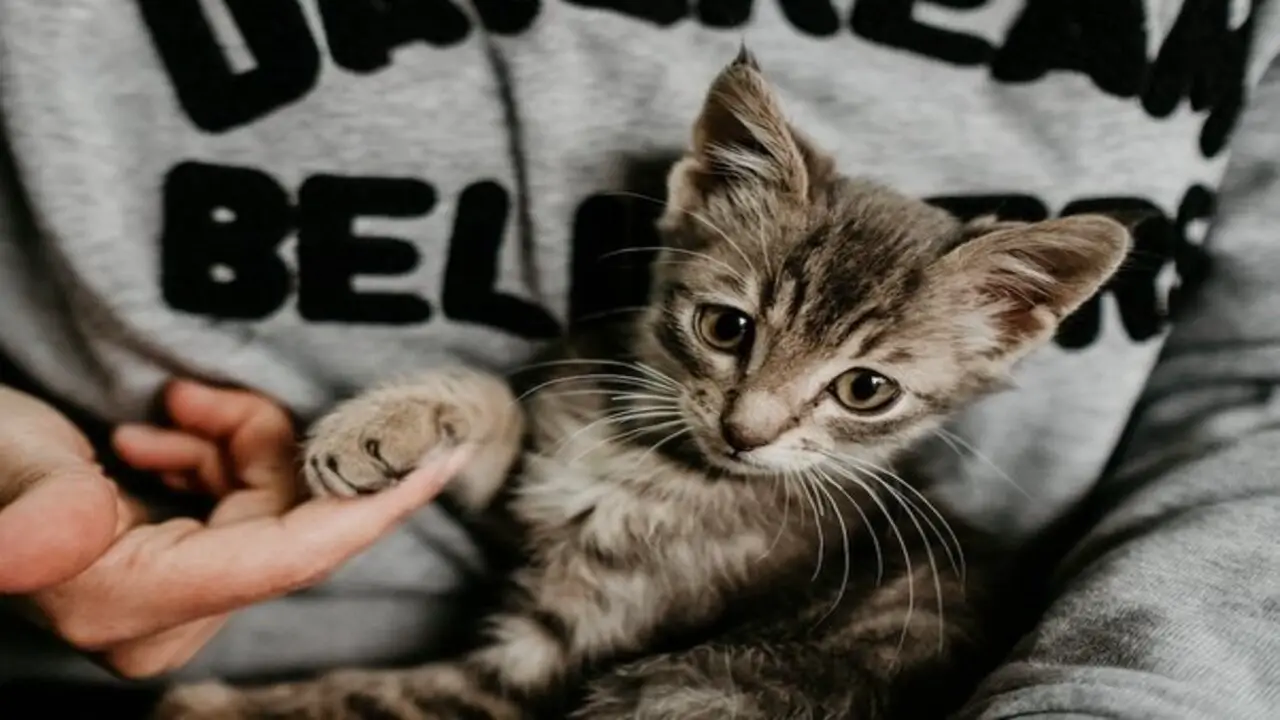
When getting a new kitten, knowing whether it will be friendly and pleasant is important. At the same time, there is no guaranteed way to predict a kitten’s personality. Some signs can indicate whether they may be more likely to be friendly. For example, curious and playful kittens with humans are often more social and outgoing.
Additionally, kittens raised in a home environment where they were exposed to human interaction from an early age tend to be more comfortable around people. However, it’s important to remember that every kitten is unique, and their personality can change as they grow and develop. Ultimately, spending time with the kitten before adopting them is important to ensure their personality fits your family and lifestyle well.
Why Is My Kitten Not A Lap Cat?
It’s common for new kitten owners to expect their furry friend to be a lap cat from day one, but not all kittens are naturally inclined to cuddle up in laps. There could be several reasons your kitten isn’t a lap cat, such as their personality, breed tendencies, or previous experiences.
Some cats prefer their space and may not enjoy being held or sitting on laps. Others may take time to warm up to their owners and become more affectionate over time. It’s important to remember that every cat is unique and has their own preferences regarding cuddling and affection.
Instead of forcing your kitten to be a lap cat, focus on building a strong bond through playtime and positive interactions. With patience and understanding, your kitten may eventually become the ultimate lap companion.
How Do You Train A Kitten To Be A Lap Cat?
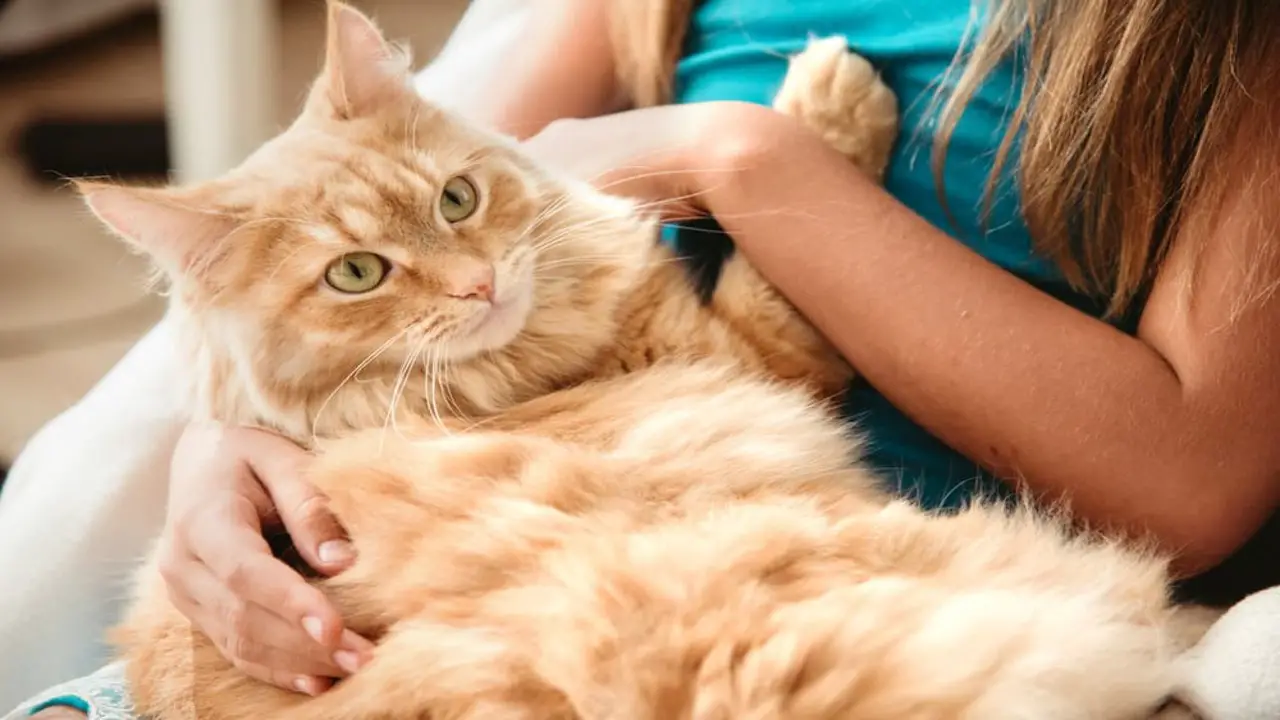
Training a kitten to become a lap cat can be a rewarding experience for you and your furry friend. The key is to start early and be patient. Remember, every cat is unique and may require different lap training approaches.
It’s important to be patient, and understanding, and respect their boundaries throughout the process. With time and patience, your kitten will hopefully become a loving lap companion that brings you joy and comfort. Here are some tips to help you train your kitten to be a lap cat:
- Create A Comfortable And Inviting Space: Set up a cosy spot with soft blankets or pillows where your kitten can relax and feel safe.
- Start With Short Sessions: Begin by gently placing your kitten on your lap for just a few minutes at a time. Use treats or toys to reward them for staying calm and relaxed.
- Gradually Increase The Duration: As your kitten becomes more comfortable, gradually increase the amount of time they spend on your lap. Be sure to provide plenty of positive reinforcement during these longer sessions.
- Use Positive Reinforcement: Reward your kitten with treats, praise, or playtime whenever they choose to sit on your lap voluntarily.
- Be Consistent: Consistency is key when training any animal, so make sure to set aside regular time each day for lap training.
Encouraging Lap Time And Bonding Activities With The Kitten
Building a strong bond with your new kitten is essential for creating a happy and healthy relationship. One great way to encourage lap time and bonding activities with your kitten is to ensure they feel safe and comfortable around you. Start by providing a cosy spot to rest, such as a soft bed or blanket, and give them plenty of attention and affection throughout the day as they have a lot of energy to burn.
When lap time, start by sitting in a quiet and peaceful space with your kitten and offering treats or toys to entice them onto your lap. Over time, your kitten will become more comfortable snuggling up on your lap for cuddles and bonding time. Spending quality time with your new kitten is not only enjoyable, but it also helps to strengthen the bond between you and your furry friend.
Another great activity is interactive playtime, such as using laser pointers or fishing pole toys to engage your kitten’s natural hunting instincts while building your bond through shared playtime. By creating positive experiences with your kitten, you’ll be well on your way to developing a lifelong friendship full of love and joy.
How Do I Get My Kitty To Be More Cuddly?
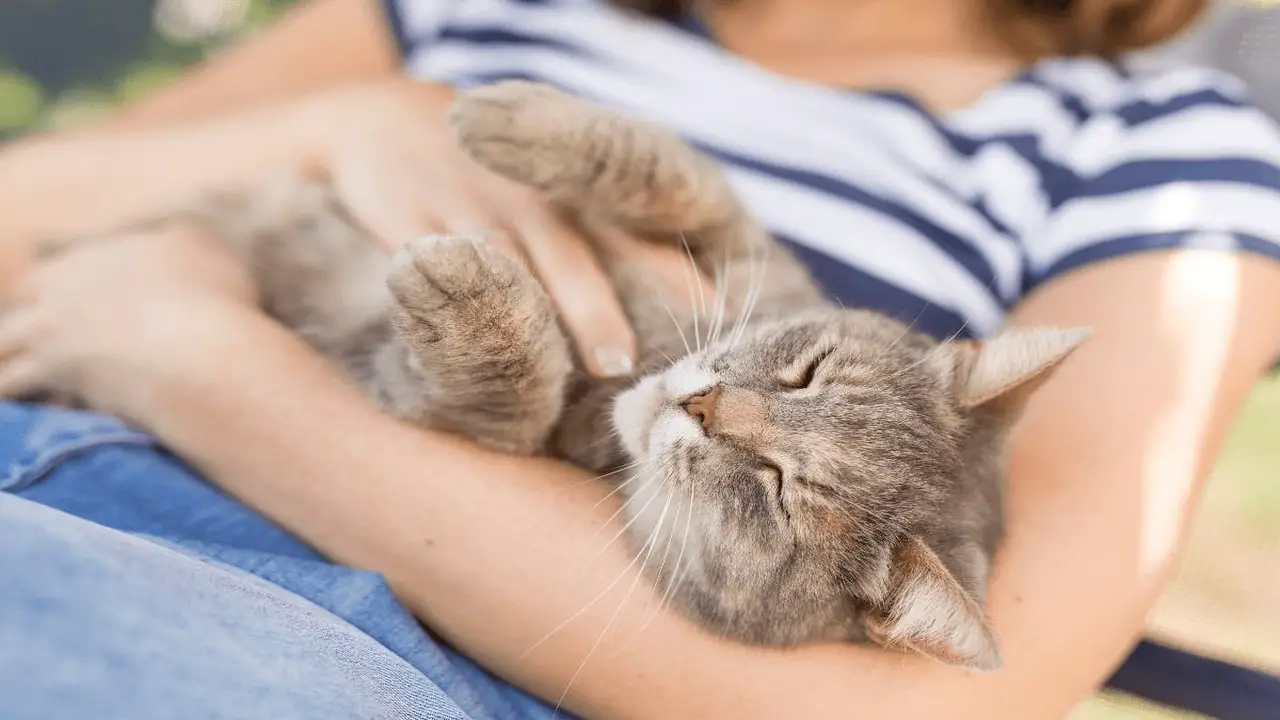
Kitties love to cuddle, and it’s a sign of affection. However, not all kitties are cuddly by nature. If Kitty seems resistant or aggressive when you try to cuddle her, it might be time for a trip to the veterinarian. However, there are a few things you can do to encourage cuddling. One way is to provide some interactive toys.
These can be anything from a ball to cat toys. Keep up the good work; soon, you’ll have a purring lap cat. Another way to encourage cuddling is by feeding Kitty in a nearby dish. This will help her associate cuddling with food, and she may eventually be more cuddly with you. If Kitty still seems resistant or aggressive, it might be time to consider getting a new kitty friend. But don’t worry. There are plenty of cuddly kitties out there.
Common Mistakes To Avoid When Trying To Make Your Kitten A Lap Cat
When making your kitten a lap cat, it’s important to avoid common mistakes that hinder the process. By avoiding these common mistakes, you can increase the chances of successfully turning your kitten into a lap cat. Here are some common mistakes to avoid:
- Forcing Your Kitten: It is important to let your kitten approach you on their own terms. Forcing them onto your lap or overwhelming them with attention can make them anxious or scared.
- Neglecting Their Preferences: Each kitten is unique and may have different preferences for how they like to be petted or cuddled. Pay attention to their body language and adjust your interactions accordingly.
- Inconsistency: Consistency is key when it comes to training a kitten. Set aside regular time for bonding and be consistent in your approach.
- Not Providing A Comfortable Environment: Make sure your kitten has a cosy and safe space where they feel comfortable before attempting to make them a lap cat.
Conclusion
We have discussed how to tell if a kitten is going to be a lap cat; now, we hope you understand the topic. Determining whether a kitten will grow up to be a lap cat can be a challenging task. However, you can make an informed decision by observing their behaviour and personality traits.
Pay attention to how they interact with humans, whether they enjoy cuddling, and if they seek out attention. Additionally, consider their breed and their history of socialization. By considering all these factors, you can make an educated guess as to whether your kitten will grow up to be a lap cat.
Every cat is unique, and respecting their individual personalities and preferences is important. If you are looking for a kitten, the first thing you need to do is ensure they are the right cat. There are different types of cats, so it’s important to be able to tell which type your potential new pet will be.
FAQs
At What Age Do Cats Become Lap Cats?
Cats can become lap cats at various ages, ranging from a few months to several years old. It largely depends on the individual cat's personality, socialization level, and comfort with physical contact. Some kittens may naturally seek out laps for cuddling and attention, while others may take longer to develop this behaviour.
How Do You Tell If A Kitten Will Be A Good Cat?
Kitten behaviour can change as they mature. However, certain signs can indicate a kitten's potential for being a good cat, such as being friendly and social, showing curiosity and playfulness, and being willing to handle and interact with humans.
How Do I Pick A Friendly Kitten?
To pick a friendly kitten, pay attention to their behaviour and socialization. Look for a kitten who approaches you willingly, shows curiosity, and is not overly timid or aggressive. Observe how they interact with their littermates and humans, as kittens who engage in play and seek interaction are more likely to be friendly.
How Can I Tell If My Kitten Likes Me?
You can tell if your kitten likes you by observing their behaviour. If they seek out your company, purr when you're near, rub against you, or bring you gifts (such as toys or dead insects), these are all signs that your kitten is showing affection and bonding with you.
Do Kittens Like Being Kissed?
Some kittens may enjoy being kissed, while others may not. It depends on the individual kitten's personality and experiences. It's important to pay attention to their body language and cues to determine if they are comfortable with kisses.

Aquarium passion is all about connecting with the aquatic life and providing education to the public on the importance of these creatures. We showcase a wide variety of marine life through our exhibits as well as working with schools to provide unique learning opportunities for students of all ages.


